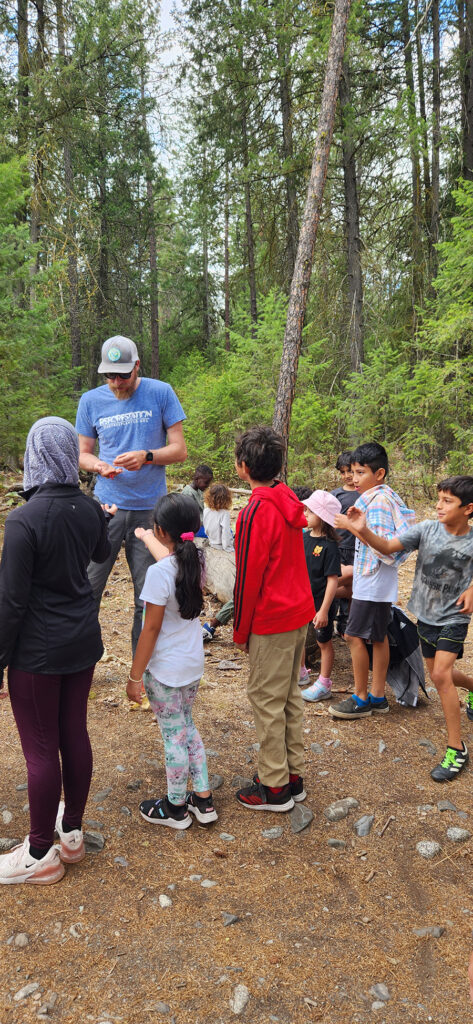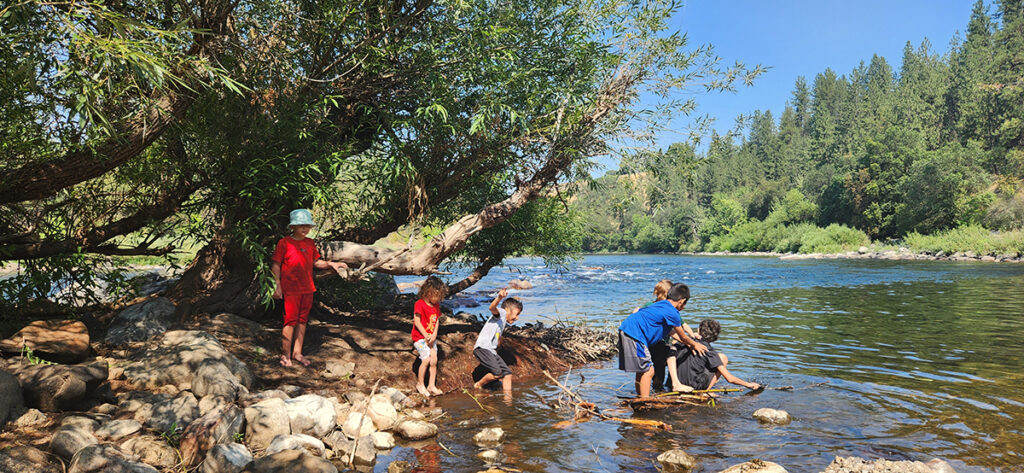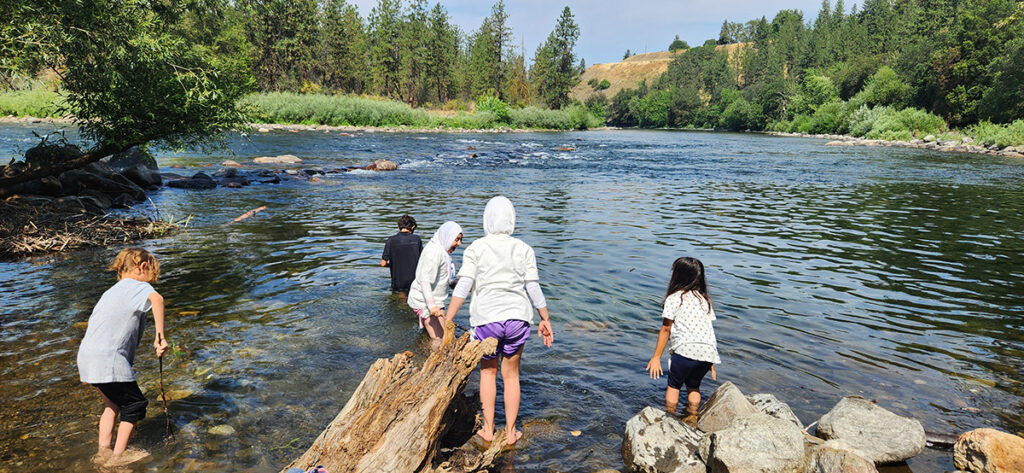By Amanda Parrish
Cover photo courtesy Jasmine Vilar
In the heart of Spokane, a quiet revolution is unfolding, one that challenges the notion of who “belongs” in nature. For many black and brown kids, the outdoors can feel like an unwelcoming place, especially for immigrant and refugee children who already struggle with stigma and a sense of isolation. To combat this, The Lands Council, along with Refugee and Immigrant Connections Spokane (RICS), two local nonprofits, have launched Nature Connect: a program creating inclusive outdoor experiences while addressing barriers to access faced by marginalized communities.
It’s an unfortunate reality that for people of color, particularly those from immigrant and refugee backgrounds, outdoor spaces can feel inaccessible. Financial constraints like parking permits, transportation challenges, and feelings of exclusion often make visiting parks and green spaces difficult. Spokane might be “near nature, near perfect,” but when the people enjoying those natural spaces don’t look like you, it can feel like they’re not meant for you. This is a reality for many immigrant families in the region, who, on top of adjusting to a new culture and environment, may feel disconnected from the natural beauty around them.

Through the Nature Connect program, The Lands Council hopes to foster a sense of belonging and empowerment among refugee and immigrant youth by offering meaningful outdoor experiences. Partnering with RICS, the program introduces families to local parks like Dishman Hills and Riverside State Park. Kids engage in activities like hiking, wildlife observation, and learning about local ecosystems, with translation services when needed. These outings build knowledge of nature and foster teamwork, communication, and leadership, helping children feel more connected to the community and nature.
Jasmine Vilar, The Lands Council’s development director and creator of Nature Connect, knows firsthand how alienating outdoor spaces can feel. As the first-generation daughter of a Persian immigrant, she grew up without seeing anyone who looked like her in nature. “I never felt like I belonged in those spaces,” Vilar recalls. “It was hard to shake the feeling that the outdoors was for some, but not for me or my family.”

Nature Connect aims to change that narrative for today’s immigrant children. “We’re not just introducing kids to the outdoors,” Vilar says. “We’re breaking down barriers and showing them that these parks, forests, and rivers are for them too. A connection to nature doesn’t just enrich your life; it helps you feel at home.”
Programs like Nature Connect address a broader issue: the need for more inclusivity and accessibility to outdoor spaces. Nationally, there’s growing recognition of the lack of diversity in parks and trails. Overcoming these disparities is essential for environmental justice and ensuring that all communities, particularly those most vulnerable to climate change, are included in conservation efforts.
For immigrant and refugee families, the benefits of connecting to nature go far beyond recreation. It fosters mental well-being, strengthens community ties, and helps children build a sense of identity and belonging. By offering culturally sensitive programming and removing logistical barriers, Nature Connect ensures that nature becomes a space for healing and inclusion.
“This work is about rewriting the narrative,” Vilar explains. “We want every child, no matter where they come from, to feel that they have a stake in this land. Nature belongs to all of us.”

As Spokane continues to grow and welcome new families, initiatives like Nature Connect play a vital role in creating a more inclusive community. By breaking down the barriers that prevent marginalized children from engaging with nature, programs like this empower the next generation and foster a sense of belonging and stewardship. The Lands Council is eager to grow Nature Connect in coordination with RICS’ wellness program to include outings for adults.
For generations, we’ve fought to preserve and revitalize the public lands of our nation. For today’s environmental leaders, it’s time we preserve and revitalize access to these public lands too.
Amanda Parrish is the Executive Director of The Lands Council, a local environmental non-profit that works on public lands and climate justice issues along with restoration and education. She enjoys open water swimming in the summer and seeking hot springs in the winter













